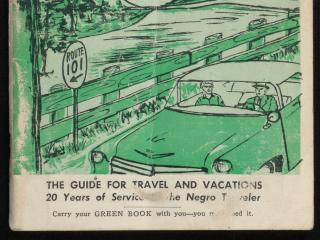To a certain extent, loneliness is part of the human condition. You can be lonely anywhere, even surrounded by friends. But modern life has exacerbated it, and that requires modern solutions. Indie game designer Jason Rohrer has one — an artificial friend named Samantha.More
Politics and History
During the height of the pandemic, producer Charles Monroe-Kane made a yard sign — 300 of them, in fact. They read "You're not ok. That's ok." He put a few in his yard and the rest on his porch. Soon they were gone.More
Andrea Dobynes Wagner is legally, but not obviously, blind. Every time she sits down for a job interview, Andrea weighs the pros and cons of disclosure. Will telling people she has a disability help or hurt her chances?More
For her book “Nickel and Dimed: On (Not) Getting by in America,” writer Barbara Ehrenreich worked at a series of minimally paid jobs. Speaking to Anne in 2003, she said was surprised to be both physically exhausted and mentally challenged by “menial” work.More
There are small, novel, concrete and grassroots ways to provide aid to the unhoused. Actress Annabelle Gurwitch was part of an experiment, a home-stay program, where individuals share their houses with people who need a place to live.More
Michael Twitty can trace his family’s food history back to the slave cabins and Antebellum kitchens of the South. Honoring his diasporic heritage — he’s both black and Jewish — lead Twitty to the practice of identity cooking. He calls it Kosher/Soul.More
Lawrence Ross delved into the "Green Book," a 1957 handbook to help black motorists find safe stops along the highway, and used it to shape a contemporary road trip that celebrated black history, culture, and business.More
Finn Murphy talks about his career as a long-haul driver who moves people's possessions across the country.More
Manal al-Sharif on how the most transgressive thing a Saudi woman could do was learn to drive.More
"Museum of Everyday Life" founder and curator Clare Dolan calls it "an ongoing, revolutionary experiment" — a celebration of "the mysterious delight embedded in the banal but beloved objects we touch everyday.More
In her new book, author Eula Biss reckons with a new phase in her life, moving from an apartment in Chicago to the first house her family owns. While that dream is about as American as the proverbial apple pie, Biss ruminates on the reality that it’s an impossible dream for many people.More
Journalist Adam Minter wrote a whole book about what happens to our things when we don’t want them anymore. It’s called “Secondhand: Travels in the New Global Garage Sale” Angelo asked him: why don’t we think more about the things we donate?More
When Angelo visited the House on the Rock for the first time, at first he saw a testament to one man's obsession and demented imagination. But then he started to think — does he have his own bizarre collection of stuff in his home?More
Writer Ayelet Waldman recounts many stories about what she calls "the perils and joys of trying to be a decent mother in a world intent on making you feel like a bad one."More
Jacqueline Plumez tells Steve Paulson that every caring woman has greater strength than she imagines and gives some examples of "mother power" in action, from MADD to the Mall of America.More
When the pandemic hit, it laid bare just how precarious parenting arrangements were — especially for single parents, parents who can't work from home, and the unemployed. Working mothers in particular lost jobs or were forced to quit to take care of children at home. Journalist Alissa Quart spoke with Shannon about why a "parenting revolution" might be on the horizon.More
While one way of making life better for parents could be changing the structure around us, author and reporter Michaeleen Doucleff thinks parents could learn to do things differently — taking cues from mothers and fathers in ancient civilizations.More
Kenyan literary scholar Simon Gikandi says you can’t understand the rise of European culture — or for that matter, the formation of the modern world — without also knowing how European thinkers demonized Africans and the very idea of "blackness."More


















